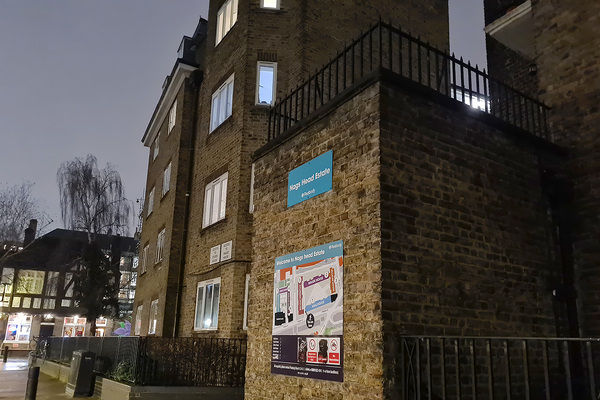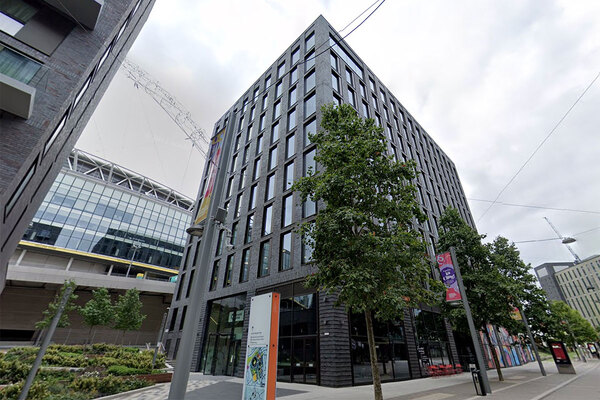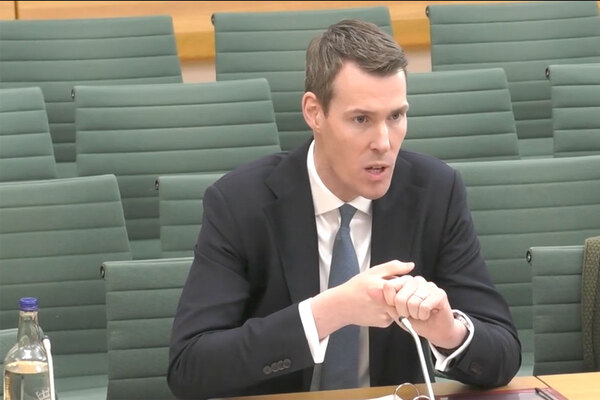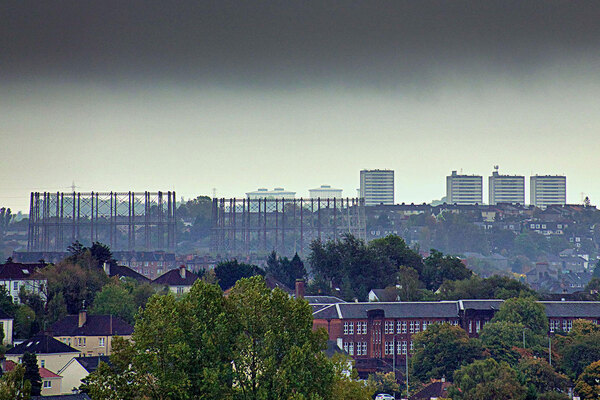Ombudsman shares 100 cases of severe damp and mould from 20 landlords
The Housing Ombudsman has shared over 100 cases of severe damp and mould as it warned that the issue now dominates half of its casework.

A new report from England’s social housing watchdog named 20 landlords that were hit with severe maladministration decisions relating to damp and mould.
Richard Blakeway, the housing ombudsman, said landlords “are still struggling with timescales” and inspections within damp and mould complaints, despite often having policies that set out clear actions and resolution times.
These delays will need to be addressed under Awaab’s Law, which is due to be rolled out for both social and private landlords by the Labour government.
The report makes clear that residents experienced distress and disruption from damp and mould as landlords’ responses to the problem were delayed.
Some residents lost the use of bedrooms or belongings such as sofas as mould spread. They also reported ceilings near collapse and health impacts to them or their children, including asthma and eczema.
The ombudsman also highlighted cases where the compensation offered by landlords for “significant and prolonged” failings was “repeatedly inadequate”.
Barking and Dagenham Council in London offered just £150 compensation to a family who lived with extensive mould for five years, with their bedrooms being uninhabitable.
This situation resulted in “unusable bedrooms, damage to belongings and severe distress”, according to the ombudsman. The watchdog ordered the landlord to pay £4,000 in compensation, apologise to the resident, and review their complaints-handling and repair reporting processes.
Peabody proposed £850 for four years’ worth of damp and mould failings, despite the “huge impact” they had had on a disabled resident. The landlord could not provide all the copies of surveys and inspections it conducted at the property, or evidence to show the work it did.
In its response, Peabody said: “We are very sorry that we didn’t do a good job of dealing with these complaints.
“In the past few years, we have made significant changes to how we manage damp and mould repairs and have formed specialist complaints and record-handling teams who make sure that any issues are handled promptly.
“We have a group that specifically monitors and manages damp and mould cases to give them the specialist focus they need, and have been doing proactive reviews, contacting thousands of residents to inspect homes and do repairs where necessary.
“We understand the importance of listening to and engaging with residents and are doing so through meetings, focus groups and our online platforms. We are using what we learn from residents to improve, as well as reviewing what we do against best practice and the ombudsman’s Spotlight reports.
“We are committed to strengthening complaints-handling, investing in local services and repairs, and are spending £1m a day ensuring homes are safe and well maintained.”
A Barking and Dagenham spokesperson said: “It is clear that the service received by our resident was not to the standard we strive to provide, and we apologise for this.
“We have since reviewed our role in fixing damp and mould in our properties, and we’re committed to providing the best possible service for residents.
“We welcome the external input from the Housing Ombudsman, and we’ll use this experience to continue to drive improvements.
Learning from complaints is a key priority for us, as we continue to put residents at the heart of everything we do.”
Mr Blakeway said: “This is a topic that now dominates half of our casework and one coming into sharp focus, given the government’s intention to introduce Awaab’s Law into both the social and private rented sectors.
“It is clear that landlords are still struggling with timescales. This is despite policies often setting out a clear sequence of actions and existing obligations requiring reasonable resolution times.
“Throughout these cases, landlord inspections are revealed as limited or repeated because of poor records before action is taken, with living conditions deteriorating during these delays.
“Often there can be a disconnect between the survey recommendations and the schedule of works as these repairs are being delayed. Cases also include repairs being ‘completed’ but issues remaining for the resident, and cases being closed without follow-up inspections or communication with the resident.”
The ombudsman highlighted how delays can often come with greater cost for landlords, both in terms of repairs and avoidable redress. He urged them to re-evaluate approaches to compensation using these cases, to embed a fair and reasonable approach in local complaints procedures.
This approach is an expectation of the statutory complaints-handling code.
Mr Blakeway added: “It is wholly unreasonable to offer just £150 to a resident who lost both their bedrooms to mould for more than a year, as happened in one case.
“Moreover, addressing the root causes of inadequate inspections and delays means resources can go into services rather than redressing service failings.”
The 20 landlords named in the report are:
- Bromford
- Clarion
- Croydon Council
- Curo Group
- Islington Council
- Kingston upon Thames Council
- Lewisham Council
- Barking and Dagenham Council
- Longhurst Group
- L&Q
- Metropolitan Thames Valley
- Moat Homes
- PA Housing
- Peabody
- Places for People
- Sanctuary
- Southwark Council
- Sovereign Network Homes
- Swindon Council
- Waltham Forest Council
Any landlord in that list that would like to comment, please reach out to james.riding@oceanmedia.co.uk.
Earlier this year, Inside Housing spoke to the tenants on one east London estate who are teaming up to file a joint legal claim about the damp and mould in their homes.
Sign up for our tenancy management newsletter
Already have an account? Click here to manage your newsletters











